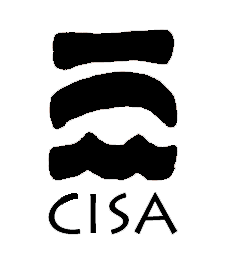Submission of Paper
The corresponding author should submit the paper to the journal online using our editorial system (ScholarOne Manuscripts). The author will be guided through the online process, and be able to track the progress of the manuscript. The system automatically converts the article source files into a single PDF, which is used in the peer review process.
For further details about the preparation of the files for submission, please browse the complete Guide for Authors.
To enable speedy handling of the manuscript, during the submission process the author must provide the names and e-mail addresses of at least three potential referees (note that the editor retains the sole right to decide whether or not to use the people suggested). The author may also exclude a limited number of researchers as potential reviewers of the manuscript (maximum three people).
Editorial Office Assessment
The Editorial Office will check whether the composition and format of the paper comply with the Guide for Authors, to ensure it includes the required sections and styles. If the manuscript fails to meet one or more requirements, the Editorial Office will return it to the authors for amendments.
Evaluation by the Editor-in-Chief (EIC) and Assignment to an Associate Editor (AE)
The EIC performs a pre-screening and may reject papers upfront and decide not to forward them to the peer review process. This may occur in the case of submission of clearly plagiarized or previously published papers, as well as of papers that fall outside the scope of the Journal, are not innovative or are of low relevance for readers.
The study must meet all ethical requirements as outlined in the Journal’s Publication Ethics.
If the manuscript meets all requirements, the EIC will assign it to an Associate Editor with relevant expertise, who will be responsible for managing the peer review process. Associate Editors may reject manuscripts that they deem highly unlikely to pass peer review.
Invitation to Reviewers and Response
Detritus operates a single blind review process. The quality of manuscript content is assessed by the AE and a minimum of two additional independent expert reviewers.
The handling AE sends invitations to individuals he/she maintains would be appropriate reviewers. Potential reviewers consider the invitation in light of their own expertise, conflicts of interest and availability and are free to accept or decline the invitation. If possible, when declining, they may also suggest alternative reviewers.
As responses are received, further invitations are issued, if necessary, until the required number of reviewers is obtained.
Review
The reviewers will rate several aspects of the manuscript, offer specific suggestions for improvement, and make a recommendation with regard to its suitability for publication. They are required to possess specific expertise in the field of the individual submission, have time to produce a report within the deadline established by the editor and to be devoid of any conflict of interest with the Authors or the content of the submission.
They are expected to be balanced and consistently fair in evaluating papers and their reports should be analytical and constructive.
The review is submitted to the journal, with a recommendation to accept or reject the paper or with a request for revision (major or minor), that should be well substantiated and justified.
If major issues are identified on first reading the manuscript, the reviewer may decide to reject the paper without further input.
All information contained in the manuscript and acquired during the review process will be held in the strictest confidence.
AE evaluates the Reviews and makes a Decision
The handling AE considers all reviews received before making an overall decision. If the reviews differ considerably, the AE may invite additional reviewers in order to obtain further opinions before making a decision.The key parameters to be applied in the final evaluation of all types of submissions are:
- Innovation (Is the manuscript original? Does it provide new evidence or ideas capable of furthering knowledge in the given social economic context?)
- Quality (clarity, logic, English language and grammar, thoroughness, layout etc.)
- Relevance (interest to readers, not too specific, applicability, importance of the topic, impact on social life, economy, scientific community, etc.)
Four possible decisions may therefore be reached:
- Accept – the manuscript satisfies all publication parameters and is worthy of publication
- Minor/Major Revisions – further revision of the manuscript is required in order to satisfy all parameters (a deadline for submission of the revised version is set)
- Reject and Resubmission Suggested – the paper fails to satisfy key parameters and substantial revision of the manuscript is required to address its shortcomings (no deadlines are set)
- Reject – the paper fails to satisfy key parameters and it is highly unlikely that further work can address its shortcomings.
Confirmation of the Decision and Communication to the Authors
All decisions are confirmed by the EIC prior to notification.
The Editorial Office sends a decision email to the corresponding author including any relevant reviewer comments. All comments and related files will be provided in an anonymised form.
Final Steps
If accepted, the paper is sent to production. Reviewers will receive an email informing them of the outcome of their review. Detritus will make every effort to ensure articles are published rapidly and accurately: the corresponding author will receive an e-mail with a link to the online proofing system (implementation in progress), and he/she should submit all corrections within 48 hours. Following implementation of the corrections and signing of the Copyright Assignment by the authors, the article is published online under the licence Creative Commons Attribution – NonCommercial – NoDerivs Alike (CC-BY-NC-ND).
Copyright for commercial and associated uses will remain with the Publisher.
If the article is returned to the authors for major or minor revision, the Editorial Office will provide constructive comments from the reviewers to help the author improve the article and set a deadline for submission of the revised manuscript. Whenever possible, the revised manuscript will be assessed by the original AE and by the original reviewers. Should only minor changes be requested this follow-up review may be performed directly by the AE.
If rejected, the paper is removed from the online system. Reviewers will receive an email informing them of the final decision.
Appeals
If the author believes that the editorial decision reached for the manuscript is not fair, he/she may contact the Editorial Office at editorialoffice@detritusjournal.com, stating the manuscript number and describing in detail the reasons for appeal. The EIC will evaluate all requests and make a final decision, consulting the handling AE and revising the previous decision, if necessary.
Commenting (implementation in progress)
Published articles are available for online commenting. Readers who wish to leave a comment should register with their name, email address and affiliation, and, to ensure transparency, their names will be published alongside the comment. Comments are moderated by a Managing Editor to ensure they are constructive and do not contain inappropriate language.
Errata and Corrigenda
Detritus will publish corrections to the article if significant errors are discovered after publication. An Erratum will be published if the Journal is responsible for the error, whilst a Corrigendum will be provided if the author is responsible.
Retractions
Articles may be withdrawn, retracted, removed or replaced after publication if they contain substantial errors that cannot be corrected by publishing an Erratum or a Corrigendum, or if ethical violations become known after publication. For more information, please visit our Publication Ethics


